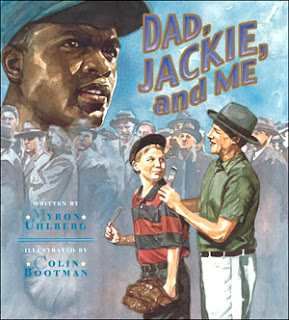This book fell into my life a few years ago, but I apparently wasn't ready to have faith because it kept falling further down in the pile of unread books. Suddenly it reappeared at the top and I picked it up again thinking, "I could use a little faith." A coincidence that fell into place at just the right time.
I often love Mitch Albom, but sometimes I feel like he takes the easy way out by minimizing the difficult questions he starts to ask. This was one of those kinds of Mitch Albom books for me, but there were still golden nuggets of truth that made me think in a new way.
Have a Little Faith is Mitch's first nonfiction book since writing
Tuesdays with Morrie. When the book begins, 82 year-old Rabbi Albert Lewis asks Mitch to give his eulogy. Mitch agrees on the condition that he get to know the "Reb" as a man, rather than rely on his childhood memories. Although Mitch left the Jewish faith years ago, he is intrigued with discovering the foundation of the Rabbi's faith. The Reb is bigger than life for Mitch. He is all that is good with the world.
His foil is Pastor Henry Covington. This man is a former convict, drug dealer, and recovering addict. He now preaches to the homeless people living in the church. Mitch has every reason to not have faith in the pastor's intentions.
Though the men are opposites in all the least important ways, they never vary from their faith in something bigger than themselves. Through their life lessons, sermons, and actions, Mitch learns to have faith again.
Although the story seemed contrived and forced in parts, I truly liked the Rabbi and the Reverend. These men had great lessons to teach. I wish Mitch would have let their words speak for themselves rather than trying to convince me of their profoundness.
One line that struck me the most was a line by Rabbi Lewis. After being treated poorly by a doctor because of his religion, Rabbi Lewis made s condolence call when he learned the doctor's brother died. When Mitch asked why, the Rabbi replied, "In this job, you don't retaliate." I loved this view of life and the flawed humans that live here. What a wonderful way to see everything in our lives. In this job, family, marriage, religion, country...we don't retaliate. What a world we would live in.
When a Catholic priest became enraged over a parking situation and spat out, "They didn't exterminate enough of you," the Rabbi manages to walk arm in arm with the priest around the playground of the Catholic school during recess. Because of his ability to forgive the man, the people in both congregations grew to accept and understand one another. No one would have blamed the rabbi for being bitter and angry, but instead he used the moment to teach an unforgettable lesson of forgiveness and love to everyone else.
Another life-changing moment for me came from Mitch.
I used to think I knew everything. I was a "smart person" who "got things done," and because of that, the higher I climbed, the more I could look down and scoff at what seemed silly or simple even religion. But I realized something as I drove home that night; that I am neither better nor smarter, only luckier. And I should be ashamed of thinking I knew everything, because you can know the whole world and still feel lost in it. So many people are in pain - no matter how smart or accomplished - they cry, they yearn, they hurt. But instead of looking down on things, they look up, which is where I should have been looking, too. Because when the world quiets to the sound of your own breathing, we all want the same things: comfort, love, and a peaceful heart.
I have many flaws, one is thinking too highly of myself. I need to be continually reminded that I am not better or smarter, only luckier.





